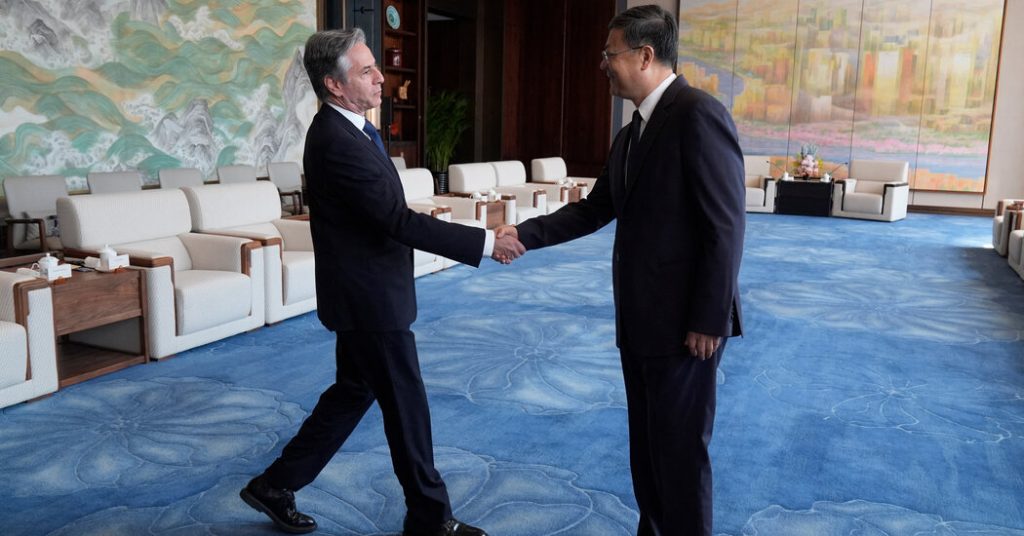Secretary of State Antony J. Blinken is meeting officials in China this week amidst disputes over wars, trade, technology, and security that are testing the stability of the relationship between the two countries. The United States is heading into an election year where President Biden will face pressure to deal with China’s authoritarian government and protect American businesses and workers from low-priced Chinese imports. China is seeking foreign investment to boost its economy while also increasing national security efforts, including expanding its military presence in regions like Taiwan and the South China Sea, causing concern among neighboring countries. Despite tensions, President Biden and Chinese leader Xi Jinping have held talks to prevent disputes from escalating into conflict.
The United States has been pushing back against China’s territorial claims in regions like the South China Sea and Taiwan by forming security alliances in Asia, leading Beijing to believe the U.S. is trying to contain its rise. Encounters between Chinese and American military forces in the Taiwan Strait and the South and East China Seas have continued, raising fears of potential confrontations. China has criticized U.S. efforts, accusing it of stoking confrontation and interfering in regional affairs. To counter U.S. moves, China has been strengthening ties with non-aligned countries in the region, calling for non-interference in regional matters.
U.S. officials have raised concerns about China’s role in the supply of chemicals and precursors used to make the powerful drug fentanyl. President Biden and Chinese President Xi have agreed to cooperate on reducing these flows, with the U.S. pushing for more action from China. The U.S. House Congressional committee has accused China of actively promoting the supply of fentanyl precursors to the U.S. China has denied playing a significant role in the fentanyl crisis and has taken steps against suppliers. The U.S. stresses the need for progress in curtailing the flow of these harmful substances.
Trade and technology restrictions have heightened tensions between the U.S. and China, with the U.S. urging China to decrease exports of certain goods and considering tariffs on Chinese products to protect American jobs. The Biden administration has imposed new tariffs on steel and aluminum products from China and initiated an investigation into unfair practices in certain Chinese sectors. Restrictions on selling advanced chips to China have increased due to concerns about military applications. The U.S. Senate has passed a bill that could force TikTok’s Chinese owner to sell the app or face being banned. China views these restrictions as attempts to hinder its development and has called for promoting innovation to boost the economy.
U.S. officials have voiced concerns about potential Chinese interference in the upcoming U.S. presidential election and cyberattacks targeting critical American infrastructure. While China denies such actions, leaked documents suggest state-sponsored hacking efforts worldwide. Additionally, the U.S. is wary of China’s support for Russia in its war in Ukraine, as Chinese sales of materials to Moscow could impact the conflict. The U.S. seeks to persuade China to withdraw this backing to influence the war’s outcome. Both China and Russia have sought to weaken U.S. global dominance, blaming “U.S. hegemony” for constraining their agendas.
In the Middle East, U.S. officials are urging China to use its influence over Iran to prevent escalation in its conflict with Israel. China and Iran have long-standing diplomatic ties, and China has invested in Iran’s economy in exchange for oil and fuel. China has defended Iran’s actions against Israel as “self-defense” and has blamed the U.S. for instability in the Middle East. While seeking to avoid broader conflicts, the U.S. is engaging with China to help manage tensions in the region.


